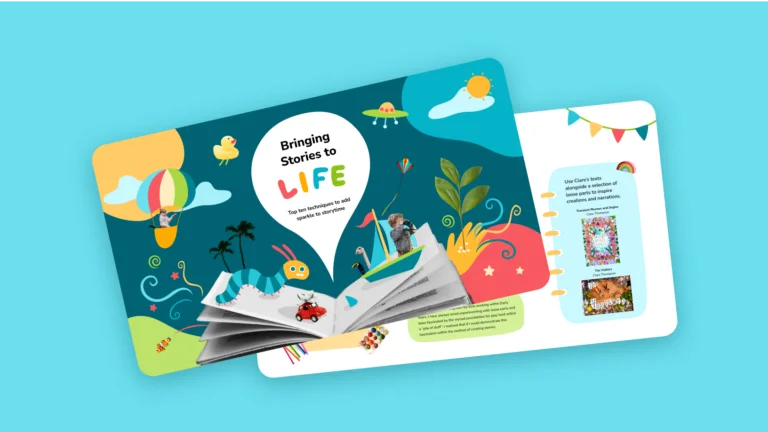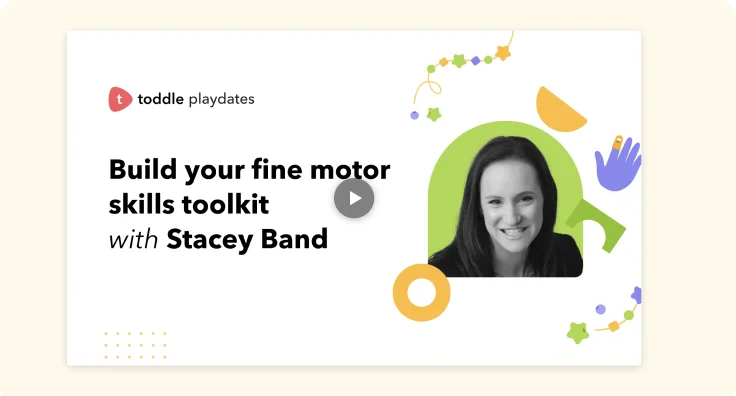Kindergarten Booklist for Social and Emotional Learning
Based on the original work of Maggie Hos-McGrane
As educators, we understand the importance of allocating time and space to focus on social and emotional learning in our classrooms. It is our responsibility as teachers to ensure that students are in-tune with their emotions, have the tools they need to communicate how they feel and understand important aspects of social and emotional learning to develop well-rounded personalities. However, a question we come across often during our conversations with teachers is how do we talk about emotions in a way that is authentic to young children.
One proactive and impactful strategy to do this is through storytelling. Books can provide children in the Early Years with tools and vocabulary to identify pleasant and unpleasant feelings, and help us provide them with strategies to manage their emotions.
Our approach when creating this booklist
Go into the library, and you will most likely get overwhelmed by the thousands of children’s books available to you. We have simplified this search by putting together a list based on CASEL’s core competencies framework, and ensuring that we have a balance of genders, humans, and animals.
We focussed on choosing books that promote the development of a healthy identity, building empathy, forming supportive relationships, and taking caring decisions.
How you can use this booklist in your classroom
Since many kindergarten children cannot yet read, the books have been chosen for their use as read-alouds. Read-alouds are important for early learners as they not only engage them but also aid in the development of vocabulary and comprehension. Children who are read to frequently are usually keen to become readers themselves.
How to make your read-aloud sessions engaging
- Make your characters and story come alive – Use different voices for different characters, and add changes in your narration pace, volume, pitch, and tone.
- Connect and reflect – Pause and ask students to make connections to what they hear, reflect on what they liked about the story, make inferences, and so on.
- Make predictions – Engage your students by asking them to predict what might happen next in the story. This will develop their listening and speaking skills and help them make connections to personal experiences.
- Record expressive read-alouds – Record an interactive read-aloud on Toddle’s Workbook. After the read-aloud, pose a question to your students through the audio feature, asking them to record their answers. Students can send their responses to you through the audio recording feature. Beyond asking for audio responses, you can also encourage your young learners to draw pictures or showcase their understanding using Toddle’s Workbook. Giving students opportunities to express themselves in diverse ways can help them reflect effectively.
- Reading at school and beyond – Families can support young learners in identifying and managing emotions while developing a healthy sense of self by reading to them at home.
Empowering students to identify and manage their emotions is an important aspect of social and emotional learning. Books and storytelling captivate the interest of young readers and support them to understand and express their emotions. We hope the recommended readings are enjoyable and will help your students experience a safe and healthy learning environment at school and beyond.


Whoops! But It Wasn’t Me
By Lauren Child
Read more

The Grizzy Bear Who Lost His Grrrrr!
By Rob Biddulph
Read more

The Busy Beaver
By Nicholas Oldland
Read more

The Only Way is Badger
By Stella J Jones
Read more

Whoops! But It Wasn’t Me
By Lauren Child

The Grizzy Bear Who Lost His Grrrrr!
By Rob Biddulph

The Busy Beaver
By Nicholas Oldland

The Only Way is Badger
By Stella J Jones


The Day The Crayons Quit
By Drew Daywalt
Read more

Hugless Douglas
By David Melling
Read more

The Old Egg
By Emily Gravett
Read more

Meesha Makes Friends
By Tom Percival
Read more

The Day The Crayons Quit
By Drew Daywalt

Hugless Douglas
By David Melling

The Old Egg
By Emily Gravett

Meesha Makes Friends
By Tom Percival


It’s Hard to Be Five
By Jamie Lee Curtis
Read more

Lilly’s Purple Plastic Purse
By Kevin Henkes
Read more

Waiting Is Not Easy!
By Mo Willems
Read more

Ping Pong Pig
By Caroline Jayne Church
Read more

It’s Hard to Be Five
By Jamie Lee Curtis

Lilly’s Purple Plastic Purse
By Kevin Henkes

Waiting Is Not Easy!
By Mo Willems

Ping Pong Pig
By Caroline Jayne Church


Martha Doesn’t Say Sorry
By Samantha Berger
Read more

Tiger, Tiger, Is It True?
By Byron Katie and Hans Wilhelm
Read more

The Feel Good Book
By Todd Parr
Read more

Red: A Crayon's Story
By Michael Hall
Read more

Martha Doesn’t Say Sorry
By Samantha Berger

Tiger, Tiger, Is It True?
By Byron Katie and Hans Wilhelm

The Feel Good Book
By Todd Parr

Red: A Crayon's Story
By Michael Hall


Rulers of the Playground
By Joseph Kuefler
Read more

Stellaluna
By Janell Cannon
Read more

Feathers And Fools
By Mem Fox
Read more

Change Sings
By Amanda Gorman
Read more

Rulers of the Playground
By Joseph Kuefler

Stellaluna
By Janell Cannon

Feathers And Fools
By Mem Fox

Change Sings
By Amanda Gorman









